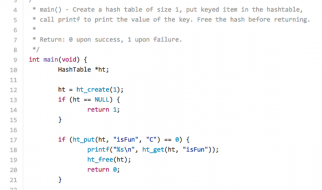When do you use suus, a, um and when do you use eius or eorum in Latin? A look at pronouns and possessive adjectives.

?He saw his teacher the other day. No, not his own teacher, John?s teacher.? In English, possessive pronouns can be confusing. ?His? can refer to ?his own? or someone else?s. In Latin, it is easier to tell. Here?s how it works.
[Note: If you know the basics and want to see examples (including suus, a, um in the nominative or reflexive adjective/pronouns referring to antecedents that are not the subject), scroll down!]
suus, a, um
Suus, a, um is a reflexive possessive adjective. In simple terms, use suus, a, um when the ?his,? ?her,? ?its,? or ?their? is the same as the subject. (This applies to third person subjects.) Most of the time, you can only use suus, a, um if the person it is referring to (the antecedent) is in the same sentence.
Scenario 1:I saw his teacher.
Let?s say we?re talking about Marcus? teacher. Marcus is not in this sentence. In this scenario, we were talking about him a bit earlier. Therefore, we cannot use suus, a, um here.
Scenario 2:a) Marcus saw his teacher.
In this scenario, Marcus could have seen someone else?s teacher. In English, it is unclear. If Marcus saw his own teacher, you would use suus, a, um.
suus, a, um is an adjective. Adjectives have the same gender (and also case and number) as the words they describe. In this case, the teacher is a woman. Therefore, even though ?his? is referring to Marcus, the adjective will be feminine.
Marcus suam magistram vidit.
b) Marcus saw his teachers.
Let?s say Marcus saw a few of his teachers. Since ?teachers? is plural, the adjective has to be plural as well. Even though ?his? is singular in English, in Latin suus, a, um is an adjective and takes the number of the noun it is describing. If it is describing a singular noun, it will be singular. If it describes a plural noun, it will be plural.
Marcus suas magistras vidit.
Scenario 3:The girls saw their teacher.
In this case, girls is plural, but teacher is singular.
Puellae suum magistrum viderunt.
eius, eorum, & earum
If the antecedent (the noun the pronoun is referring to) is NOT the same as the subject, use the genitive of a demonstrative pronoun.
Use eius for his, hers, its. Use eorum or earum for their.
The examples I use here are from is, ea, id, but you can also use the genitive of hic, haec, hoc; ille, illa, illud; or another demonstrative pronoun.
Since these are pronouns and not adjectives, the number (singular or plural) and gender are the same as the antecedent, NOT the noun that is being described.
Scenario 1:She saw her mother
If this is her own mother, you would need to use suus, a, um (suam matrem vidit). If this is someone else?s mother, you will use eius.
eius matrem vidit.
Scenario 2:She saw his mother.
In this sentence, it is clear that ?his? does not refer to the subject of the sentence. So, we need to use eius.
eius matrem vidit.
Since eius is masculine, feminine and neuter, it can mean his, hers, or its depending on the noun it refers to.
Scenario 3:She saw their teacher.
Their does not refer to the subject of the sentence (?she?). Therefore, we need to use a genitive. If we know that the antecedent is a group of women, we use earum. Otherwise, we use eorum.
magistram earum vidit.
Scenario 4: COMPOUND SUBJECTSRex et filius eius venerunt. The king and his son came. [eius is referring to king]
When there is a compound subject and the possession only applies to one of the subjects, use eius. The subject of this verb is ?they,? and ?his? only refers to one part of the ?they.?
Reflexive Pronouns
The same rules apply to the reflexive pronoun ( ? , sui, sibi, se, se). If the pronoun refers back to the third person subject of the sentence, use the reflexive pronoun. If it refers to another person, use the demonstrative pronoun (is, ea, id; hic, haec, hoc; etc).
Scenario 1:These are pretty straightforward. a) Canis se spectat.The dog looks at himself.
b) Canis eum spectat.The dog looks at him.
Pronouns in Indirect Statements
In indirect statements, use se if the subject of the indirect statement is the same as the subject of the main verb (the verb that introduces the indirect statement). Use eum/eam/eos/eas if the subject of the indirect statement is NOT the same as the subject of the main verb.
a) Puella dicit se in urbe habitare.The girls says she lives in the city. [se = puella]
b) Puer dicit se in urbe habitare.The boy says he lives in the city. [se = puer]
c) dicunt se ad insulam navigare.They say that they are sailing to the island. [they = the subject of dicunt]
d) Puella dicit eam in urbe habitare.The girl says she lives in the city. [eam = someone who is not the puella]
Reflexives Referring to Non-Subjects
In Latin literature, you will see the reflexive adjective (suus, a, um) and reflexive pronoun (? , sui, sibi, se, se) used to refer to nouns that are NOT the subject. In these cases, they are referring to the main person in the sentence, even if that person is not in the nominative case.
Scenario 1:Invitor a Catullo domum suam.I am invited by Catullus to his house.
Catullus is the main person in this sentence. Even though he is an ablative of agent, I can use suus, a, um to refer to him.
Brutum philosphiae suae relinquamus.Let?s leave Brutus to his philosophy.
Brutus is the direct object of this sentence, but suae is referring to Brutus? philosphy. The subject of this sentence is ?we,? so ?suae? is not referring to the subject in this case.
suus, a, um in the Nominative Case
When suus, a, um is in the nominative case, it is usually describing something that is the subject of a verb in a main clause. It is not generally in the main clause itself, unless it is referring to a noun that is the main idea of the sentence, but not the subject (e.g. a dative of possession).
Scenario 1:suus cuique mos est.To each person his/her/their own custom.
suus is modifying mos, the subject of the sentence, but it is referring to cuique, a dative.
Scenario 2:Milites rogaverunt ubi suus dux dormiret. The soldiers asked where their leader was sleeping. [suus is referring back to milites]
Here, we have suus, a, um in the nominative case inside of a subordinate clause. So, it is referring back to the subject of a main verb in a different part of the sentence.
Examples from Latin Authors
- Cicero, Pro S. Roscio Amerino 67.4Situation: suus used in the nominative to describe the main player in the sentence that is not the subject (the accusative quemque)Latin: Sua quemque fraus et suus terror maxime vexat.English: Greatly annoying everyone is his own deceit and fear.Not Literal: Everyone is greatly annoyed by his own deceit and fear.Comment: sua and suus refer to quemque
- Cicero, Epistulae ad Atticum 2.1.12.1Situation: suus used in the nominative in a subordinate clause, referring back to the subject of the main clause.Latin: Paetus, ut antea te scripsi, omnes libros quos frater suus relinquisset mihi donavit. English: Paetus, as I wrote to you before, gave me all the books which his brother left behind. Comment: suus refers to Paetus, the subject of the main clause.
- Pliny the Elder, Naturalis Historia 2.79.6Situation: Reflexive is referring to a word that is not in the nominative case.Latin: suus quidem cuique color est.English: Each one has his own color.Literal: To each one there is his own color.Comment: suus refers to cuique (dative of possession)
- Caesar, Bellum Civile 1.32Situation: Gerundive used with the reflexive pronoun.Latin: Pompeius praesentem facultatem insequendi sui ademerat.English: Pompey had taken away the current opportunity of following him. Comment: sui refers to Pompey. This is the genitive of the reflexive pronoun.
If you want to take an even deeper dive:
The Role of Antecedents of Latin Anaphors by Alessandra Bertocchi
Latin Reflexive Pronouns at the Crossroads of Syntax and Pragmatics by Elena Zheltova
Both of these resources mention the idea of empathy and reflexives used to refer to the noun with which the author identifies.


